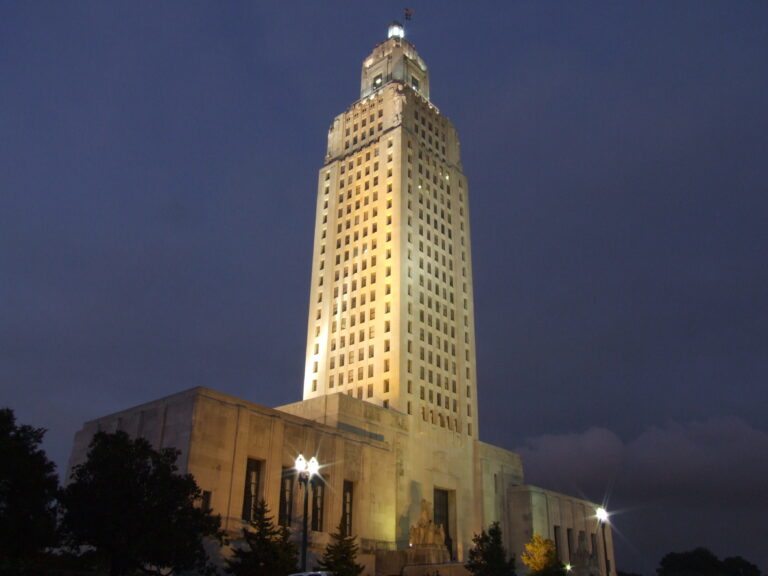By: Piper Hutchinson | Louisiana Illuminator
Republican state lawmakers in Louisiana hope a pending U.S. Supreme Court decision will require them to redraw the state’s congressional districts. If that scenario unfolds, public input on the new boundaries will be limited after GOP legislators rejected two proposals Tuesday that their author said would inform debate on the maps.
The Louisiana House and Governmental Affairs Committee killed both measures, which Rep. Edmond Jordan, D-Baton Rouge, said were aimed at increasing transparency in a possible upcoming legislative session for redistricting.
“Ultimately, we should not be legislating in the dark or rushing through the process,” said Jordan, who chairs the Legislative Black Caucus.
House Bill 5 and House Concurrent Resolution 1 were voted down along party lines.
House Bill 5 would have required lawmakers to update an existing website on redistricting or create a new one where members of the public could locate materials on redistricting, such as proposed maps, written testimony and other materials distributed by the legislature. It also would have required the publication of any third-party redistricting analyses conducted on the legislature’s behalf.
Jordan’s resolution would have prohibited lawmakers from holding hearings on proposed maps within 72 hours of the proposal’s online publication. It would have also required each subsequent vote on a map to happen at least 24 hours apart. The provision similar to a constitutional amendment voters approved last year that requires the legislature to wait 48 hours before voting on changes to budget bills.
The legislature is currently in a special session Republican Gov. Jeff Landry called to have lawmakers push back dates for next year’s congressional party primaries and runoffs. The calendar adjustment would give lawmakers more time to respond to a ruling from the U.S. Supreme Court in the case Louisiana v. Callais.
Though the outcome of the case could require lawmakers to redraw Louisiana’s congressional district boundaries, they would not have to do so in time for the 2026 election. Republican sponsors of the date changes have said they provide a window for them to tackle redistricting in time for the 2026 midterms.
Though lawmakers hope the decision will come down before the end of the year, the court usually releases decisions several months after they hold arguments, typically in late spring of each year. After an initial hearing in March, justices called for a rare second round of arguments in Louisiana v. Callias that took place Oct. 15.
The high court’s decision could trim back Section 2 of the Voting Rights Act of 1965, which would limit the extent to which states can consider race in the redistricting process. If that happens, Louisiana’s Republican supermajority legislature could use the extra time to enact a map with one or two fewer majority Black districts, potentially costing Democrats two seats in Congress.
Democrats have argued next year midterms should be held using the existing map, which Republican lawmakers endorsed in early 2024, because there is no guarantee the Supreme Court will rule in time to allow for a redistricting session.
In previous redistricting sessions – Louisiana has held three since fall 2022 – bills have moved very quickly. Lawmakers have suspended their own rules to hasten the process, meaning the public had little time to digest the changes or decide whether or not to visit the Capitol to testify.
The committee’s chairman, Rep. Beau Beaullieu, R-New Iberia, said there was too much “gray area” in Jordan’s bill regarding what materials must be posted online. Beaullieu is also co-author of the legislation that adjusts next year’s election calendar, which is expected to gain final approval Wednesday.
Beaullieu also suggested Jordan’s resolution could put lawmakers at risk of missing the Jan. 13 deadline the Secretary of State’s office has set to receive new congressional maps in time for the election qualifying period in February.
Even if the committee had advanced Jordan’s proposals, it is unlikely they would have passed the legislature, as the body has signaled it will likely adjourn Wednesday, despite having more than two more weeks left to complete its work.

